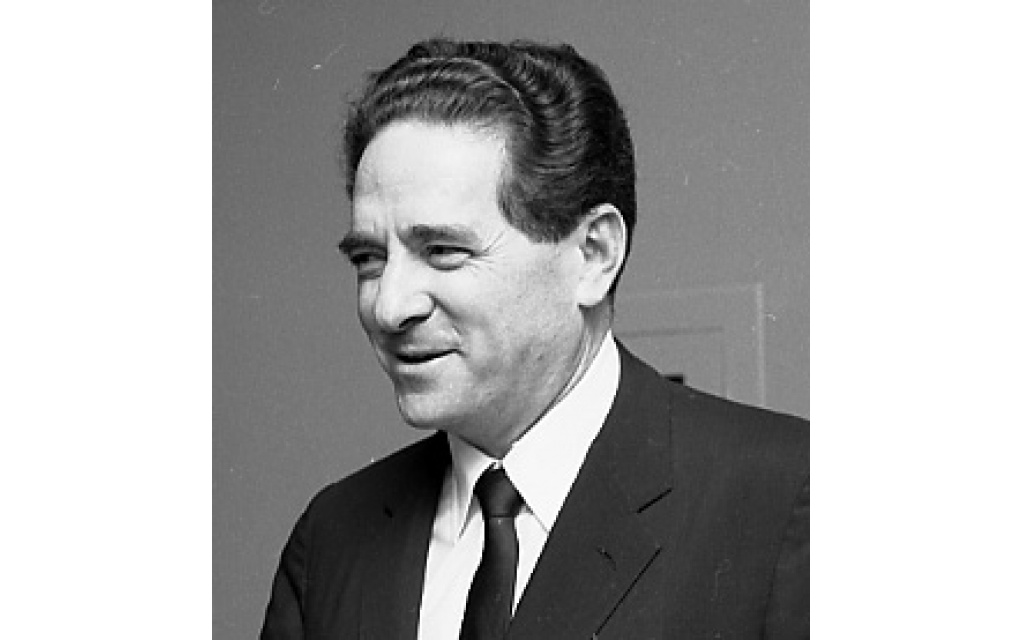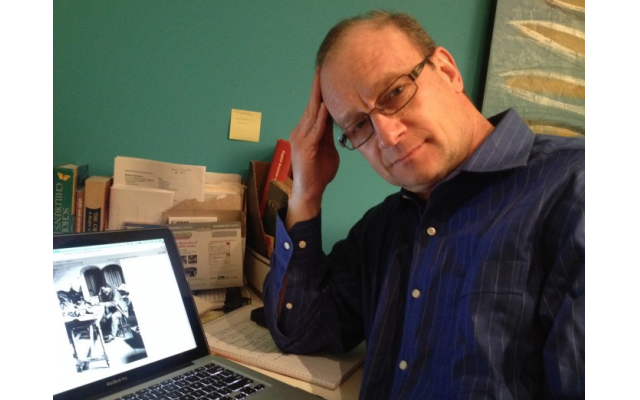Honoring the legacy of a small town Jewish boy
The life and legal career of Morris Abram will be remembered as part of this year's Rothschild Lecture.
Dave Schechter is a veteran journalist whose career includes writing and producing reports from Israel and elsewhere in the Middle East.
The space allotted this column is insufficient to review the life of Morris Berthold Abram, the Jewish boy from Fitzgerald, Georgia, who left his mark on civil rights in this country and human rights internationally.
If all Abram had achieved was the U.S. Supreme Court ruling that affirmed the principle of “one person, one vote” – ending Georgia’s “county unit” system, which weighted voting results in a manner that preserved the conservative/rural (and white) status quo – then “dayenu,” it would have been enough.
Abram’s legacy will be commemorated during this year’s Rothschild Lecture. James Loeffler, the Jay Berkowitz Professor of Jewish History at the University of Virginia, will discuss the themes of his book “Rooted Cosmopolitans – Jews and Human Rights in the Twentieth Century.” The event, sponsored by the Tam Institute for Jewish Studies at Emory University and the American Jewish Committee, is scheduled for 7.30 p.m. on Nov. 15, at the Oxford Road Presentation Room on the Emory campus.
When Abram was born June 18, 1918, the small Jewish community Fitzgerald occasionally still heard the epithet “Christ Killer.” (Years later, as AJC president, Abram led a delegation that urged Pope Paul VI to end the deicide charge.)
In his youth, Abram demonstrated a prodigious intellect and, when the time came, he attended the University of Georgia.
Abram was selected as a Rhodes Scholar, to study at Oxford University in England, but when World War II interrupted the program he enrolled in the University of Chicago law school. Following service in the U.S. Army Air Forces, he arrived at Oxford.
Abram spent a summer break on the staff of Supreme Court Associate Justice Robert Jackson, the chief prosecutor at the Nuremberg trials of Nazi war criminals. “My role in the Nuremburg proceedings was very minor,” he wrote, “but the experience was a major turning point in my life.”
‘I would never be the same after Nuremberg, for now I understood that when the veneer of civilization is cracked, even in the twentieth century, the Jew was the first victim,” Abram said in his 1982 autobiography, “The Day is Short.”

In the late 1940s, as counsel to the Anti-Defamation League southern regional office, Abram helped draft laws to curb the Ku Klux Klan, including Georgia’s prohibition on wearing masks in public and burning crosses (without the property owner’s permission).
Democrats (a different breed than today’s liberals and progressives) so dominated Georgia politics back then that their primary was tantamount to a general election.
Georgia assigned “unit votes” to counties based on population. Though 36 percent of Georgians (including sizable numbers of blacks) lived in urban centers, those counties accounted for only 12 percent of the unit votes, while the 38 percent living in rural (primarily white) counties accounted for 59 percent of unit votes. A candidate could win the popular vote and lose an election.
Abram’s years-long battle against this system culminated in his January 1963 argument before the U.S. Supreme Court. U.S. Attorney General Robert F. Kennedy spoke in support of Abram’s case.
In March, the Court ruled 8-1 that Georgia’s unit vote system violated the Equal Protection Clause of the Fourteenth Amendment by weighting votes in favor of residents of small rural counties. Associate Justice Potter Stewart wrote, “Within a given constituency there can be room for but one constitutional rule – one voter, one vote.”
There isn’t space here is to list Abram’s presidential appointments, or all of the organizations and institutions that he headed, or to recount how his helping keep the Rev. Martin Luther King Jr. out of harm’s way won votes for John F. Kennedy.
Abram defied a 1973 diagnosis of usually fatal acute myelocytic leukemia. He died in 2000, at age 81.
His niece, Cicely Abram, said that were her uncle to survey today’s political environment, “He would have been appalled at the level of discourse, the untruths, the lack of respect for the rule of law, the demeaning of the press.”
This Jewish boy from Fitzgerald left quite a mark on this world.




comments